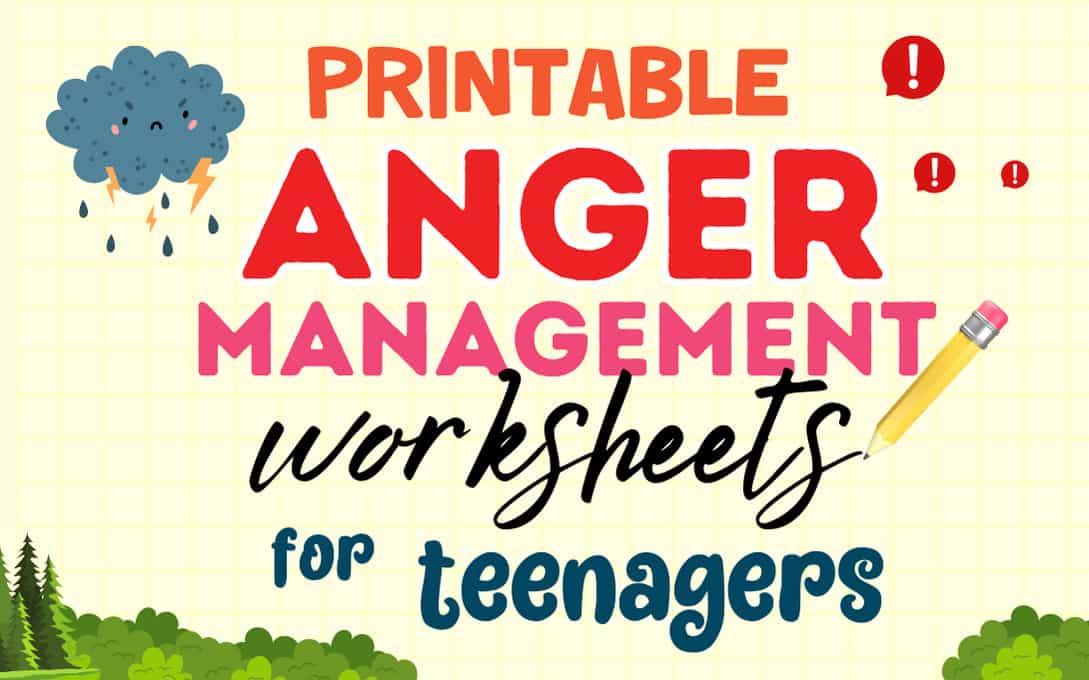Anger Management for Teenagers: A Parent’s Guide to Navigating the Storm
Hey there, lovely parents! ? Are you navigating the choppy waters of teenage emotions? Ah, the teenage years – full of growth, change… and yes, a fair share of stormy moods and outbursts. If you’ve noticed your teen’s anger barometer spiking more often than not, you’re not alone. Anger is a normal, healthy emotion, but it’s how teens (and all of us, really) handle it that makes all the difference.
Don’t fret, though! I’m here to share the sunshine with a handy guide all about anger management for teenagers. Together, let’s explore ways to help your teen understand and manage those fiery feelings in positive, constructive ways.
Understanding the Roots of Teen Anger
First things first, it’s crucial to understand what might be fueling your teenager’s anger. It could be anything from hormonal changes, stress at school, to social pressures. Recognizing the underlying issues can be the first step towards helping them. And remember, empathy is your BFF in this journey – showing you’re trying to get it, even when you don’t, goes a long way. ?
Effective Communication is Key
Chatting with your teen might sometimes feel like trying to hug a cactus ? – prickly and a bit scary. But fear not! Understanding how to communicate effectively can transform those moments. It’s all about active listening, staying calm, and validating their feelings. This doesn’t mean you agree with their actions, but it shows respect for their emotions.
Active Listening and Constructive Dialogues
Brush up on your active listening skills – nodding along, making eye contact, and repeating back what you’ve heard can show your teen that you’re really there with them, ready to understand. And when it’s your turn, speak calmly, clearly, and with love. Stick to ‘I’ statements to express your concerns without sounding accusatory.
Anger Management Techniques for Teens
Now, let’s swing into the practical stuff. There are a bunch of super-helpful techniques and exercises you can introduce to your teenager to help manage their anger:
- Deep Breathing: Simple but oh-so-effective! Encourage them to take deep breaths, in through the nose and out through the mouth, to calm the storm inside.
- Exercise: Physical activity is like a magical release valve for pent-up emotions. Plus, it pumps out those happy endorphins! ?????
- Time-Outs: Not just for toddlers! A moment of quiet self-reflection can give teenagers the break they need to simmer down.
Stick with us as we dive deeper into these techniques and more in the next section. Understanding and patience are your allies in guiding your teen to calmer waters. And hey, you might even learn some cool anger management tricks for yourself along the way! Smile – you’re doing an awesome job! ?
Stay Tuned for More Anger Busting Tips!
In the next section of our journey through the stormy seas of teen emotions, we will look at creating an anger management plan that’s tailored to your family’s needs. We’ll also talk about when and how to seek professional help, because sometimes, everyone needs a little backup, right? Hang in there; we’ll sail through this together!
Be ready to keep on learning and growing alongside your teen, and before you know it, you’ll both be riding the waves like seasoned captains of calm. Stay tuned for tips on building that proverbial ship and setting sail to smoother emotional waters – your teen will thank you for it, and that’s a promise!

Five Things Parents Should Know in Preparing for Anger Management for Teenagers
1. Anger Can Mask Other Emotions
Understanding that anger often serves as a disguise for other emotions is pivotal. Teenagers might express anger when they’re feeling hurt, embarrassed, or threatened. Recognizing this can help you navigate their emotional landscape more effectively and address the root of the issue.
2. Consistency Is Critical
As you venture into the realm of anger management, remember that consistency is your guiding star. Establish clear and consistent rules and consequences. This isn’t about being strict, but about creating a firm foundation of understanding and expectations within your household.
3. Model the Behavior You Want to See
Teens are eagle-eyed observers. If they see you managing stress and anger in a healthy manner, they’re more likely to mimic those behaviors. Be the calm in their storm by showcasing positive ways to deal with frustration and stress.
4. Equip Them with Tools
Equip your teens with an arsenal of strategies for managing anger. Techniques such as journaling, mindfulness, and even engaging in creative arts can offer alternative outlets for their emotions. The goal here is to empower them to take control before their anger does.
5. Professional Help Is a Strength, Not a Weakness
It’s commendable to seek professional guidance if you feel your teen’s anger is beyond what can be managed at home. Engaging with a counselor, therapist, or anger management program signifies strength and dedication to your teen’s well-being. Don’t hesitate to reach out if you need extra support!
Creating an Individualized Anger Management Plan
A plan tailored to your family’s unique vibe can anchor you all through rough emotional waters. Here’s how to create that blueprint:
- Start with a Family Meeting: Involve everyone in the process. Discuss triggers, patterns, and the importance of managing anger.
- Identify Coping Mechanisms: List the techniques that resonate with your teen and work them into daily routines.
- Encourage Communication: Create a culture where it’s safe to express emotions without judgment. This might involve setting up ’emotion check-ins’ throughout the week.
- Set Realistic Goals: Celebrate small victories and understand that progress isn’t linear. Patience is your trusty co-captain here.
- Revisit and Revise: Your plan isn’t set in stone. Be prepared to adapt as you learn what works best for your teen. Flexibility is key!
When to Seek Professional Help
It’s time to hoist the sails and reach out for professional help if you notice consistent patterns of destructive behavior, issues at school, or if your teen is expressing thoughts of self-harm. A good starting point could be your family physician, who can provide referrals to mental health specialists.
Seeking help is a proactive step in not just managing anger, but in promoting overall emotional wellness. Remember, therapy isn’t just for crisis management; it’s an incredible preventative tool as well.
Take heart, dear parents! The path of raising teens is a kaleidoscope of challenges and triumphs. With patience, love, and the right strategies, you’ll be equipped to help your teen transform anger into a force for growth and self-awareness. Together, you can navigate these teenage storms and emerge into calmer, sunnier days. Your hard work is planting the seeds for the future – nurturing resilient, empathetic, and emotionally savvy adults. And that, my friends, is something to feel incredibly hopeful about. Keep going, you’ve got this! ?
See more great Things to Do with Kids in New Zealand here. For more information see here
Disclaimer
The articles available via our website provide general information only and we strongly urge readers to exercise caution and conduct their own thorough research and fact-checking. The information presented should not be taken as absolute truth, and, to the maximum extent permitted by law, we will not be held liable for any inaccuracies or errors in the content. It is essential for individuals to independently verify and validate the information before making any decisions or taking any actions based on the articles.




